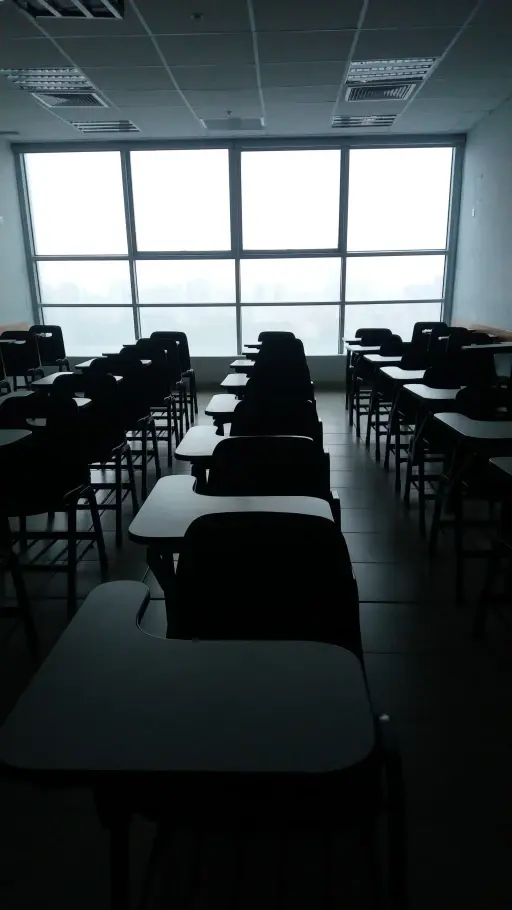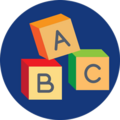WC Special Education Critical Shortage Initiatives

This is a culmination of the WRESA Special Education Critical Shortage Task Force, consisting of Directors of Special Education and Human Resources, University representatives, and Wayne RESA staff members. The large task force broke into three subgroups.
This page contains each subgroup's findings, initiatives, resources, and pilot program opportunities that will assist your district in addressing the critical shortage of staff.
Wayne RESA Initiatives
Sections Overview
Each subgroup focused on one of the three sections (Attract, Prepare, or Retain) of the Office of Special Education Programs (OSEP) Leverage Point document.
Each subgroup collaborated around the ideas presented in their section of the OSEP Leverage Documents to identify and explore initiatives and resources that would be valuable to Wayne County PSAs and Member Districts. In addition, each subgroup determined the most efficient and useful way to convey their findings with our constituents across Wayne County.
Attract
Grow Your Own: School Psychologist Internship Opportunity
School Psychologist interns who have or are qualified for a Preliminary School Psychologist Certificate in Michigan can help alleviate the Critical Shortage of School Psychologists. Interns are in the third year of their graduate program and may come from in state or out of state. After successful completion of the internship year, interns will be available to hire as School Psychologists in Wayne County.
Wayne County provides internship opportunities with diverse student populations in communities of varying needs, which will be attractive to internship candidates. Additionally, building relationships with graduate programs both locally and regionally and providing a robust internship experience could lead to a continued source of School Psychologists for the county.
Internship Details
These details are coming soon.
Attract Resources
Alternative Routes to Certification AND Funding and Loan ForgivenessColleagues and administrators may not understand the role and expertise of special education providers.
Resource: Special Education Teacher Tuition Reimbursement Grant
In response to the ongoing and intense need to provide appropriately certified and endorsed teachers for students with disabilities, the Michigan Department of Education Office of Special Education (MDE OSE) is offering a Special Education Teacher Tuition Reimbursement Grant opportunity. Districts eligible to apply for the Special Education Teacher Tuition Reimbursement Grant must have a 60 percent or higher Free and Reduced-Meals population, based on the fall 2019 data.
The Special Education Teacher Tuition Reimbursement Grant funds are intended to incentivize certified Michigan teachers to earn an additional endorsement in special education for employment in a program where they are currently not qualified. Districts must follow the Special Education Personnel Approvals process for employing teachers under initial temporary approval.
Grow Your Own
Resource: School Psychologist Apprentice Program and "Grow Your Own” Opportunities (link coming soon)
MAASE and MASP hosted this presentation in several times 2021, which provides an overview of the “Grow Your Own” models utilized in Ohio and Michigan and information on setting up a “Grow Your Own” program in your district.
Resource: Grow Your Own: A Systemic Approach to Securing an Effective Educator Talent Pool
This four-part learning series, developed through a collaboration among sis federally funded technical assistance centers, supports State education agency, local education agency, education preparation program, and community organization personnel in developing and implementing Grow Your Own programs in their state, region, or district.
Resource: NASP Exposure Project (NASP-EP)
This project aims to leverage current practitioners in order to expose high school students and undergraduates, especially those from diverse backgrounds, to school psychology as a career.
Changing Public Perception
Resource: Educator Recognition Program
This Michigan Department of Education site provides information on State and National Teacher Recognition programs.
Resource: Michigan Teacher of the Year
Since 1952, one of Michigan's outstanding teachers has been named our state's Teacher of the Year (MTOY). The MTOY serves as a representative and advocate for Michigan's more than 90,000 teachers, working with 9 fellow Regional Teachers of the Year (RTOYs) as the Michigan Teacher Leadership Advisory Council (MTLAC) to share feedback and input on educational policies and initiatives with MDE and propose ways to enhance student learning. Each RTOY brings recognition to the district he or she represents and has expanded opportunities for professional development at the state level and additional opportunities to share their experience and expertise.
Prepare
Prepare Subgroup Discussions
The prepare subgroup discussions were through a discovery lens that focused on the importance of effective personnel for all children with disabilities. Specifically, we explored policies and practices that can be utilized to effectively prepare personnel. From our exploration, we identified the pilot program, opportunities and resources below that we think will support our constituents across the county.
Simulations
Simulation allows candidates to have repeated trials in high-stakes situations without being placed in an actual setting. This allows them to make mistakes that they can learn from without risking the loss of valuable resources such as money, time, and people (Dieker, Rodriguez, Lignugaris/Kraft, Hynes, & Hughes, 2014). At Wayne RESA, we have collaborated with Mursion Simulations to provide staff with high-stakes experiences and low-risk consequences such as behavior (which can be set for mild to spicy), parent-teacher conferences, running IEP, etc… The simulations can be customized to the staff members’ specific needs. The simulations provide an opportunity to keep staff up to date on content and relevant opportunities. These simulations can be used with new staff, veteran staff, and staff that might be on a plan.
Wayne RESA and Mursion Pilot Program
Simulation allows candidates to have repeated trials in high-stakes situations without being placed in an actual setting. This allows them to make mistakes that they can learn from without risking the loss of valuable resources such as money, time, and people (Dieker, Rodriguez, Lignugaris/Kraft, Hynes, & Hughes, 2014). At Wayne RESA, we have collaborated with Mursion Simulations to provide staff with high stake experiences and low-risk consequences such as behavior (which can be set for mild to spicy), parent-teacher conferences, running IEP, etc…(please see details of available simulations below) The simulations can be customized to the staff members’ specific needs. The simulations provide an opportunity to keep staff up to date on content and relevant opportunities. These simulations can be used with new staff, veteran staff, and staff that might be on a plan.
Along with the sessions, the district will have access to technical support, which provides you support for the operation of the software through Mursions technical call center, as well as, Mursions online support. Technical support is available 13 hours a day M-F.
Mursion’s core scenarios for education have been curated from their partnerships with numerous schools of education, research institutions, non-profits, and K-12 school districts.
These scenarios are fully designed and validated for immediate use. They have been used across programs for pre-service teacher education, ongoing professional development, and education leadership. There are a few choices on the format of the sessions that are provided and allow for the district administration to customize the session to the staff’s needs. For a detailed look at simulation sessions that Mursion has to offer, access the Mursion K12 Education Expanded Brochure 2022.
Murison
Approaches to Practice
- Mursion offers flexible learning models to meet the needs of your learning curriculum and design.
- Students can engage in sessions via a group delivery facilitated by a faculty member or in private practice.
- Some scenarios apply to specific learning models.
- Scenarios tagged #facilitatedONLY are scenarios that require the session to have a facilitator.
“Group Delivery” Facilitated Sessions (60 minutes)
- Ideal for peer-to-peer learning with small groups of learners prepared and willing to take turns in a 10-12 minute simulation and share.
- Facilitators schedule a 60-minute session and can add up to 5 students per session. Only a maximum of 5 simulations can be completed in a 60-minute session.
- Scenarios that are #facilitatedONLY require a facilitator.Debrief and the facilitator or faculty member leads logistics.
“Private Practice” 1:1 Private Sessions (30 minutes)
- Ideal for learners to practice on their own at a time that works for them, typically outside of class.
- Learners conveniently register themselves and schedule 30 minutes on their own.
- Completing four private practice sessions has been proven to improve learning performance.
- A guided reflection and debrief is led by a Mursion host avatar.Option to record session to share or submit for further review.
Below are the various topic titles that the Mursion Simulations Scenario Catalog provides. More details for each scenario can be found in the Portal by logging in at Portal.Mursion.com. These scenario details are only a snapshot of the entire Learner Facing Vignette. Also, you can learn about the effectiveness of our evidence-based simulations in the article from The Economist: Using classroom simulators to transform teacher preparation.
Scenario catalog table of contents for educators:
Inclusive Classroom
| High School
|
Early Childhood
| Education Leadership
|
Upper Elementary
| Family Conference
|
Middle School
|
Paraprofessional to Teacher Initiative
In partnership with Eastern Michigan University and Wayne State University, Wayne RESA is sponsoring two initiatives that are only available to current working paraprofessionals throughout Wayne County. Eligible candidates must have a minimum of 60 college credits in any area of study. Wayne RESA will collaborate with LEAs and PSAs throughout Wayne County in an application process. Please continue to watch this space for updates.
Fall 2023 roll out of the EMU (CI and ASD) cohorts:
- 25 students per cohort
- 3.5 years to complete
- 67 credit hours
- Mentor support from district and EMU
- Teacher will have special education endorsement only
Fall 2023 roll out Wayne State and continue EMU
- 25 students per cohort
- 3.5 years to complete
- 67 credit hours
- Hired in a classroom that aligns with certification and provided a mentor
- Teacher will have special and general education (grades 3-6) endorsement
Residency Resources
Expedited Educator Preparation Programs
Recently, the definition of residency programs has expanded to include programs for other personnel. Identify universities that offer residency programs and provide summaries and contact information on the WRESA webpage such as the Educator Preparation Program.
New projects investigate teacher pipeline and residency programs
The other REL Midwest project will examine clinically oriented teacher preparation programs. Much like a medical residency program, clinically oriented teacher preparation programs offer prospective teachers both classroom experience and opportunities to work directly in a classroom under the guidance and direction of an experienced teacher. The programs typically include ongoing coaching, supervision, and support from the mentor teacher. MDE has identified clinically oriented teacher preparation programs as a potential strategy to develop highly effective new teachers and to remedy the teacher shortage problem.
Retain
Mentoring Guidance Resources
Michigan Department of Education
Resource: Mentoring and Induction FAQ
NCIPP: Induction for Beginning Special Education Teachers: Needs Assessment
Resource: Implementation Matrix and Guiding Questions
This nine-page guidance document was developed by the National Center to Inform Policy and Practice in Special Education Professional Development, and the Office of Special Education Programs U.S. Department of Education. The document includes an implementation matrix with questions to assist districts in identifying each district’s current level of induction implementation.
The primary goal of this handbook is to provide relevant and practical information for mentors as they guide the development of beginning special education teachers. The manual also provides numerous vignettes, examples, and planning forms to aid in the mentoring process.
Center on Great Teachers & Leaders at the American Institute for Research
Resource: Great Teachers & Leaders Mentoring & Induction Toolkit 2.0
GTL Center’s Mentoring and Induction Toolkit includes ready-to-use tools and resources, based on research and best practices.
The Toolkit is divided into 8 modules by topic:
- Introduction to the Toolkit
- Mentor: Recruitment Selection & Assignment
- Mentor: Professional Learning, Development & Assessment
- Beginning Teacher: Professional Learning & Development
- The Principal’s Role: In Mentoring & Induction
- Mentoring & Induction Supports for: Educators of SWD’s
- Collecting Evidence of Program Success
- Data-Driven Conversations for Equitable Access
Retain Resources
Enhancing Professional Leadership
Colleagues and administrators may not understand the role and expertise of special education providers.
Resource: Leadership Initiative for Teachers
District of Columbia’s Leadership Initiative for Teachers (LIFT). This program includes a five-stage career ladder aimed at retaining teachers in high-need areas, including special education, by providing high-performing teachers with opportunities for career advancement while remaining in their roles inside the classroom. Each stage of the career ladder involves additional leadership responsibilities and compensation, and at the culmination the participants assume a teacher leader role and are referred to as expert teachers.
Ongoing Professional Learning
PD must be presented to show that learning is continuous, targeted and aimed at enhancing skills & practices
Resource: The IRIS Center
This OSEP-funded center disseminates free professional development materials, research, and modules that can assist professional learning providers who deliver training services to education staff working in school settings.
The IRIS Center offers professional development certificates For PD Providers for teachers and a school and district platform to help school leaders organize and track their teachers’ ongoing professional learning activities.
The IRIS Center offers PD certificates to help admins organize & track their teachers’ ongoing professional learning activities.
Professional Empowerment
Schools that have a culture of collective responsibility among staff have higher rates of special education teacher retention.
Resource: Instructional Leadership Corp Handbook
A resource guide for leading sustainable professional development and advancing instructional capacity.
Induction and MentoringInduction refers to a system of coordinated & aligned supports as a path into the teaching profession. Mentoring refers to 1:1 support and feedback provided by an experienced teaching professional.
Resource: The Delaware Department of Education uses a -year Comprehensive Induction Program for CIP for Educators on an Initial License to provide educators with the support necessary to become familiar with school and district policies and procedures, hone their professional skills, help them evaluate and reflect upon their own professional performance and develop an individualized growth plan to improve their effectiveness.
Outcome
Please see Mentoring Guidance for district resources above.









